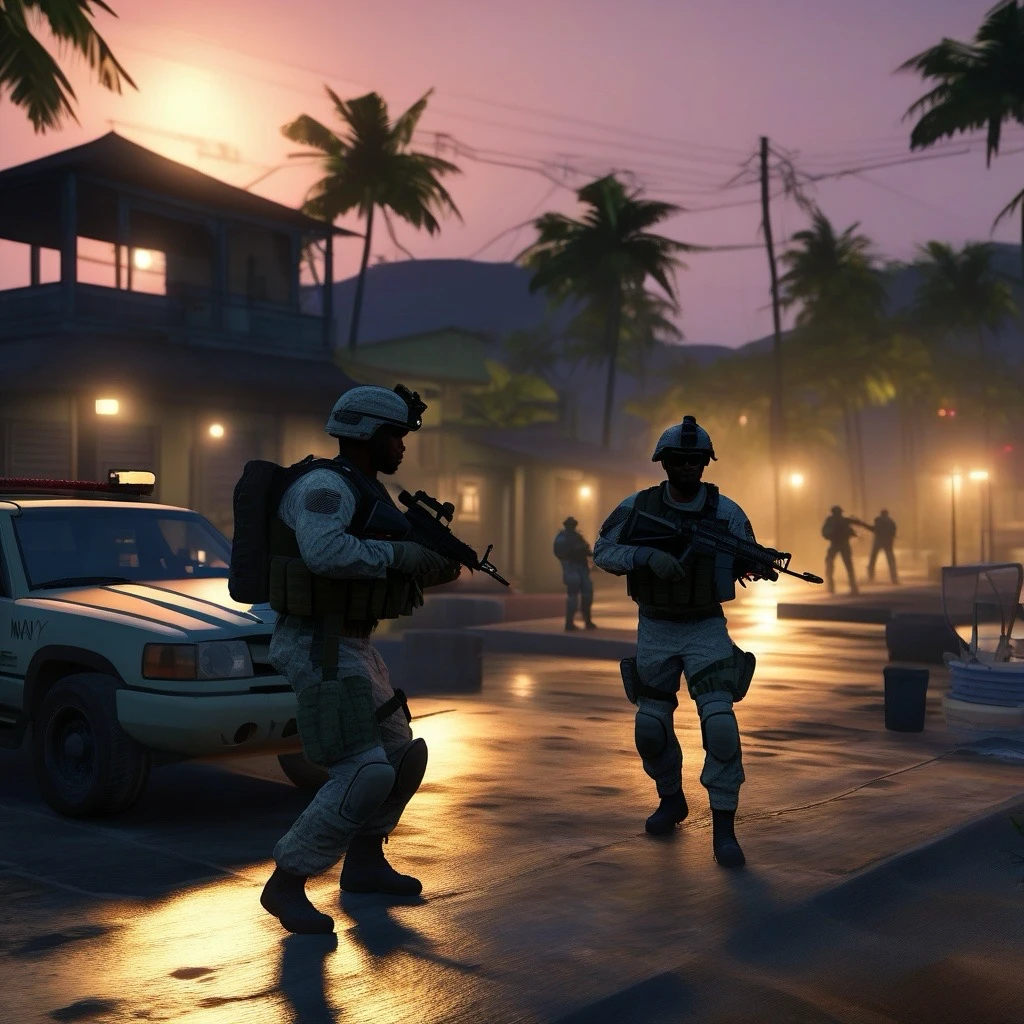Article 92 UCMJ Violation of or Failure to Obey Lawful Order
Note: This law applies only to Article 92 UCMJ Violation of or Failure to Obey Lawful Order offenses allegedly committed on or after 1 January 2019.
What is Article 92 UCMJ Violation of or Failure to Obey Lawful Order?
Article 92 of the Uniform Code of Military Justice (UCMJ) addresses the failure to obey lawful orders, a critical offense in the military. This article ensures that service members maintain discipline and adhere to the chain of command, which is essential for effective military operations.
Violations under Article 92 can occur in three primary forms: failing to obey a lawful general order or regulation, failing to obey other lawful orders from superiors, and dereliction of duty. The first involves disobeying broad directives issued by higher authorities that apply to all personnel. The second includes not following direct, specific commands from a superior officer. The third, dereliction of duty, occurs when a service member willfully or negligently fails to perform their assigned duties.
Consequences for violating Article 92 UCMJ Violation of or Failure to Obey Lawful Order are severe. They can include court-martial, reduction in rank, forfeiture of pay, confinement, and even a dishonorable discharge. The strict enforcement of Article 92 highlights the importance of obedience and discipline in the military, as disobedience can undermine authority, disrupt operations, and endanger lives. Adherence to lawful orders is fundamental to the structure and function of the armed forces, ensuring that commands are executed efficiently and effectively.
What are the Elements of Article 92 UCMJ Violation of or Failure to Obey Lawful Order?
- That (state the name and rank or grade of the person issuing the order or regulation), a member of the armed forces, issued a lawful order, to wit: (state the date and specific source of the alleged order and quote the order or the specific portion thereof);
- That the accused had knowledge of the order;
- That the accused had a duty to obey the order; and
- That (state the time and place alleged), the accused failed to obey the order by (state the manner alleged).
What are the Maximum Punishments for Article 92 UCMJ Violation of or Failure to Obey Lawful Order?
Maximum Punishment for Article 92 UCMJ Violation of or Failure to Obey Lawful Order committed between 1 Jan 2019 to 27 Dec 2023:
- 6 Months of Confinement
- BCD
- Total Forfeitures
- Reduction to E-1
- Collateral Consequences of a Federal Conviction
Maximum Punishment for Article 92 UCMJ Violation of or Failure to Obey Lawful Order committed after 27 Dec 2023
- Under the Sentencing Parameters, Article 92 UCMJ Violation of or Failure to Obey Lawful Order is a Category 1 Offense – Confinement from 0-12 months
- BCD
- Total Forfeitures
- Reduction to E-1
- Collateral Consequences of a Federal Conviction
- Note: The Military Judge MAY impose a period of confinement less than the jurisdictional maximum period of confinement upon finding specific facts that warrant such a sentence. Manual for Courts-Martial, United States (2024 ed.), Appendix 12B-C
Combined UCMJ Maximum Punishment Charts
- Maximum Punishments for UCMJ Offenses 2024: Combined UCMJ Punishments Chart
- UCMJ Lesser Included Offenses Chart 2024 UCMJ
Sample Specifications for Article 92 UCMJ Violation of or Failure to Obey Lawful Order
In that PVT Tim Tucker, US Army, having knowledge of a lawful order issued by CPT Tara McGee, to wit: the Combat Group Regulation No. 1, dated 2 June 2022, an order which it was his duty to obey, did, at Fort Campbell, Kentucky, on or about 30 July 2024, fail to obey the same by wrongfully traveling one hundred (100) miles beyond post while on recall status.
Model Specifications for Article 92 UCMJ Violation of or Failure to Obey Lawful Written Order
In that _________, (personal jurisdiction data), having knowledge of a lawful order issued by _________, to wit: (paragraph, (the Combat Group Regulation No. _________) (USS _________, Regulation _________), dated _________) (_________), an order which it was (his) (her) duty to obey, did, (at/on board— location), on or about _________, fail to obey the same by (wrongfully) _________.
Model Specifications for Article 92 UCMJ Violation of or Failure to Obey Lawful Order
In that _________, (personal jurisdiction data), having knowledge of a lawful order issued by _________ (to submit to certain medical treatment) (to) (not to ________) (________), an order which it was (his) (her) duty to obey (at/on board— location), on or about _________, fail to obey the same (by (wrongfully) _________.
What are the Definitions for Article 92 UCMJ Violation of or Failure to Obey Lawful Order?
Applicability of this instruction. This instruction should be given in any case arising under Article 92 UCMJ Violation of or Failure to Obey Lawful Order when the written order is not “general” in the sense of Article 92(1).
Lawfulness of order or regulation under Article 92 UCMJ Violation of or Failure to Obey Lawful Order
 The order’s lawfulness under Article 92 UCMJ Violation of or Failure to Obey Lawful Order is not a separate offense element. Thus, the MJ determines the lawfulness issue and does not submit it to the members. See US v. New, 55 MJ 95 (CAAF 2001); US v. Deisher, 61 MJ 313 (CAAF 2005). If the MJ determines that, based on the facts, the order was not lawful, the MJ should dismiss the affected specification, and the members should be so advised.
The order’s lawfulness under Article 92 UCMJ Violation of or Failure to Obey Lawful Order is not a separate offense element. Thus, the MJ determines the lawfulness issue and does not submit it to the members. See US v. New, 55 MJ 95 (CAAF 2001); US v. Deisher, 61 MJ 313 (CAAF 2005). If the MJ determines that, based on the facts, the order was not lawful, the MJ should dismiss the affected specification, and the members should be so advised.
Under Article 92 UCMJ Violation of or Failure to Obey Lawful Order, to be lawful, the order must relate to a specific military duty and be one that the person was authorized to give the accused. The order must require the accused to do or stop doing a particular thing at once or in the future.
Lawfulness Under Article 92 UCMJ Violation of or Failure to Obey Lawful Order
An order is lawful if reasonably necessary to safeguard and protect the morale, discipline, and usefulness of the members of a command. It is directly connected with the maintenance of good order in the services.
Under Article 92 UCMJ Violation of or Failure to Obey Lawful Order, an order is illegal if, for example, it is unrelated to military duty, its sole purpose is to accomplish some private end, it is arbitrary and unreasonable, and it is given for the sole purpose of increasing the punishment for an offense which it is expected the accused may commit.
The four preceding sentences may be modified and used by the MJ during a providence inquiry to define “lawfulness” for the accused.
When the MJ determines that, based on the facts, the order was lawful, the MJ should advise the members as follows:
As a matter of law, the order in this case, as described in the specification, was a lawful order if, in fact, there was such an order.
Exceptions to prohibited acts under Article 92 UCMJ Violation of or Failure to Obey Lawful Order
Under Article 92 UCMJ Violation of or Failure to Obey Lawful Order, when an alleged order prohibits a certain act or acts “except under certain conditions” (e.g., “except in the course of official duty”), and the issue is raised by the evidence, the burden is upon the prosecution to prove that the accused is not within the terms of the exception. In such a case, the MJ must inform the members of the specific exception(s) when listing the elements of the offense.
Additionally, an instruction substantially as follows must be given in Article 92 UCMJ Violation of or Failure to Obey Lawful Order cases: When an order prohibits (a) certain act(s), except under certain conditions, then the burden is on the prosecution to establish by legal and competent evidence beyond a reasonable doubt that the accused does not come within the terms of the exception(s).
Legal References for Article 92 UCMJ Violation of or Failure to Obey Lawful Order
- US v. Cuffee, 10 MJ 381 (CMA 1981).
Overview of Article Article 92 UCMJ Violation of or Failure to Obey Lawful Order
 Article 92 of the Uniform Code of Military Justice (UCMJ) addresses the failure to obey lawful orders or regulations, a critical offense in the military. This article is essential for maintaining discipline, order, and the effective operation of military units. Violations under Article 92 can occur in three primary forms: failing to obey a lawful general order or regulation, failing to obey other lawful orders from superiors, and dereliction of duty.
Article 92 of the Uniform Code of Military Justice (UCMJ) addresses the failure to obey lawful orders or regulations, a critical offense in the military. This article is essential for maintaining discipline, order, and the effective operation of military units. Violations under Article 92 can occur in three primary forms: failing to obey a lawful general order or regulation, failing to obey other lawful orders from superiors, and dereliction of duty.
Hiring a Military Defense Lawyer for Article 92 UCMJ Violation of or Failure to Obey Lawful Order
Failing to obey a lawful general order or regulation involves disobeying broad directives issued by higher authorities that apply to all personnel. This can include orders regarding conduct, safety protocols, and operational procedures.
Failing to obey other lawful orders includes not following direct, specific commands from a superior officer, such as instructions during training or operational directives. Dereliction of duty occurs when a service member willfully or negligently fails to perform their assigned duties, such as neglecting maintenance responsibilities or not adhering to security protocols.
Selecting the Best Military Defense Lawyers for Article 92 UCMJ Violation of or Failure to Obey Lawful Order
Violating Article 92 can lead to severe consequences, including court-martial, reduction in rank, forfeiture of pay, confinement, and dishonorable discharge. The enforcement of Article 92 UCMJ highlights the importance of obedience and discipline in the military, as disobedience can undermine authority, disrupt operations, and endanger lives.
Adherence to lawful orders is fundamental to the structure and function of the armed forces, ensuring that commands are executed efficiently and effectively. This article underscores the necessity for service members to follow orders to maintain the integrity and effectiveness of military operations.
Examples of conduct that could constitute a violation of Article 92 UCMJ Violation of or Failure to Obey Lawful Order:
- Ignoring Curfew: Disobeying a base-imposed curfew by being outside designated areas after hours.
- Unauthorized Absence: Failing to report for duty or leaving the duty station without permission.
- Using Personal Devices in Secure Areas: Using unauthorized electronic devices in classified or secure areas.
- Improper Wear of Uniform: Wearing the military uniform incorrectly or adding unauthorized items.
- Disobeying Safety Orders: Ignoring safety protocols during training or operations.
- Fraternizing with Subordinates: Engaging in inappropriate relationships with subordinates against regulations.
- Mishandling Classified Information: Failing to secure or properly handle classified materials.
- Ignoring Medical Orders: Not following prescribed medical treatments or orders.
- Using Government Vehicles for Personal Use: Driving a government vehicle for personal errands without authorization.
- Failing to Salute: Not saluting superior officers as required by military customs.
- Disrespecting Superiors: Showing disrespect or insubordination to superior officers.
- Consuming Alcohol When Prohibited: Drinking alcohol in areas or situations where it is banned by regulation.
- Drug Use: Using illegal drugs or abusing prescription medications.
- Misusing Government Funds: Improperly using or misallocating government funds.
- Ignoring Travel Restrictions: Traveling to restricted areas without proper authorization.
- Not Following Deployment Instructions: Failing to adhere to deployment orders or procedures.
- Improper Use of Weapons: Mishandling or using weapons in unauthorized ways.
- Neglecting Equipment Maintenance: Failing to perform required maintenance on military equipment.
- Misusing Communication Equipment: Using military communication devices for unauthorized purposes.
- Violating Housing Rules: Not adhering to base housing regulations.
- Possessing Unauthorized Firearms: Keeping firearms on base without proper authorization.
- Engaging in Prohibited Political Activities: Participating in political activities restricted by military regulations.
- Failing to Secure Sensitive Items: Not properly securing sensitive or valuable military items.
- Improper Use of Military Facilities: Using military facilities for unauthorized events or personal gain.
- Neglecting Duty: Not performing assigned duties as required by military orders or regulations.
Each of these examples highlights behaviors that violate specific military orders or regulations, demonstrating the importance of adhering to the standards and rules established to maintain discipline, order, and the effective functioning of the armed forces.
Sample cases involving Article 92 UCMJ Violation of or Failure to Obey Lawful Order with U.S. military service members (names and details are fictitious):
Case 1: Camp Pendleton, California Article 92 UCMJ Violation of or Failure to Obey Lawful Order
Case Details: Corporal Jane Smith disobeyed a direct order from her commanding officer to refrain from using her vehicle for off-base travel during a high-alert status. Despite the order, she drove to a nearby town and was involved in a minor accident.
Repercussions and Career Impact: Smith faced non-judicial punishment, resulting in a reduction in rank to Lance Corporal, forfeiture of pay for two months, and 30 days of extra duty. Her disobedience affected her professional reputation and stalled her career advancement.
Case 2: Fort Cavazos, Texas Article 92 UCMJ Violation of or Failure to Obey Lawful Order
Case Details: Sergeant Michael Brown was ordered to conduct routine maintenance checks on all equipment in his unit. He neglected this duty, leading to a malfunction during a training exercise that caused minor injuries to a fellow soldier.
Repercussions and Career Impact: Brown was court-martialed and received a reduction in rank to Specialist, forfeiture of pay, and 45 days of confinement. The incident severely damaged his standing within his unit and limited his future leadership opportunities.
Case 3: Naval Base Guam Article 92 UCMJ Violation of or Failure to Obey Lawful Order
Case Details: Petty Officer Second Class Emily Davis was instructed to secure classified materials in a designated safe. She failed to do so, leaving the materials unsecured overnight, which was discovered during a routine inspection.
Repercussions and Career Impact: Davis faced non-judicial punishment, resulting in a reduction in rank to Petty Officer Third Class, a formal reprimand, and 60 days of restriction to base. Her failure to obey the order led to a loss of trust and hindered her chances for promotion.
Case 4: Ramstein Air Base, Germany Article 92 UCMJ Violation of or Failure to Obey Lawful Order
Case Details: Technical Sergeant Robert Johnson ignored a general order prohibiting the use of personal drones on base. He flew his drone near an airfield, temporarily disrupting operations.
Repercussions and Career Impact: Johnson was court-martialed and received a reduction in rank, forfeiture of pay, and 30 days of confinement. The incident led to stricter enforcement of drone regulations on base and negatively impacted Johnson’s military career.
Case 5: Joint Base Pearl Harbor-Hickam, Hawaii Article 92 UCMJ Violation of or Failure to Obey Lawful Order
Case Details: Lieutenant Sarah Thompson disobeyed an order to avoid off-base bars due to a high threat level. She was caught during a police raid at a local bar where illegal activities were taking place.
Repercussions and Career Impact: Thompson faced a court-martial and was reduced in rank to Ensign, fined, and given 30 days of restriction to base. The violation damaged her record and made future promotions unlikely.
Case 6: Fort Stewart, Georgia Article 92 UCMJ Violation of or Failure to Obey Lawful Order
Case Details: Private First Class David Lee was ordered to report any suspicious activity during his guard duty. He failed to report unusual movements near the perimeter, leading to a security breach.
Repercussions and Career Impact: Lee received non-judicial punishment, resulting in a reduction in rank to Private, forfeiture of pay, and 30 days of extra duty. His negligence affected his reliability and future assignments.
Case 7: Yokota Air Base, Japan Article 92 UCMJ Violation of or Failure to Obey Lawful Order
Case Details: Senior Airman Jessica Parker was directly ordered to attend mandatory cyber security training. However, she skipped the training to go on a personal trip, which was discovered during a compliance check.
Repercussions and Career Impact: Parker faced non-judicial punishment, resulting in a reduction in rank to Airman First Class, a letter of reprimand, and 45 days of restriction to base. Her failure to obey the order impacted her professional development and promotion prospects.
Each case demonstrates the consequences of violating Article 92 UCMJ, emphasizing the importance of obedience to lawful orders and the potential impacts on a service member’s career and reputation.

